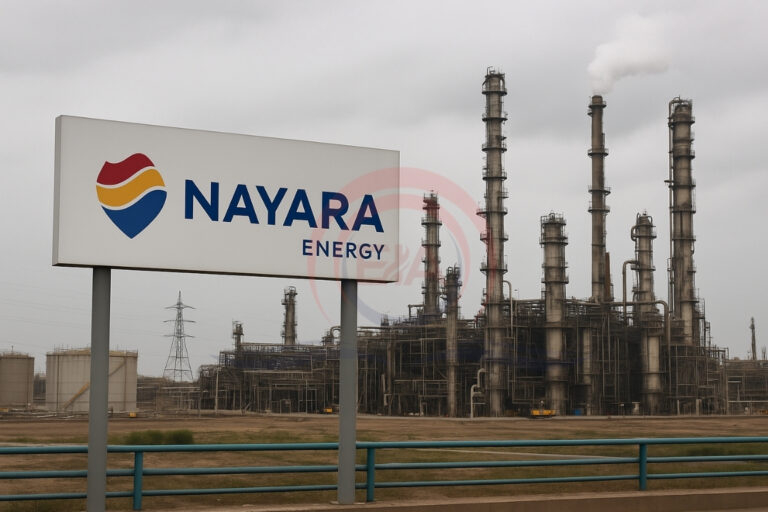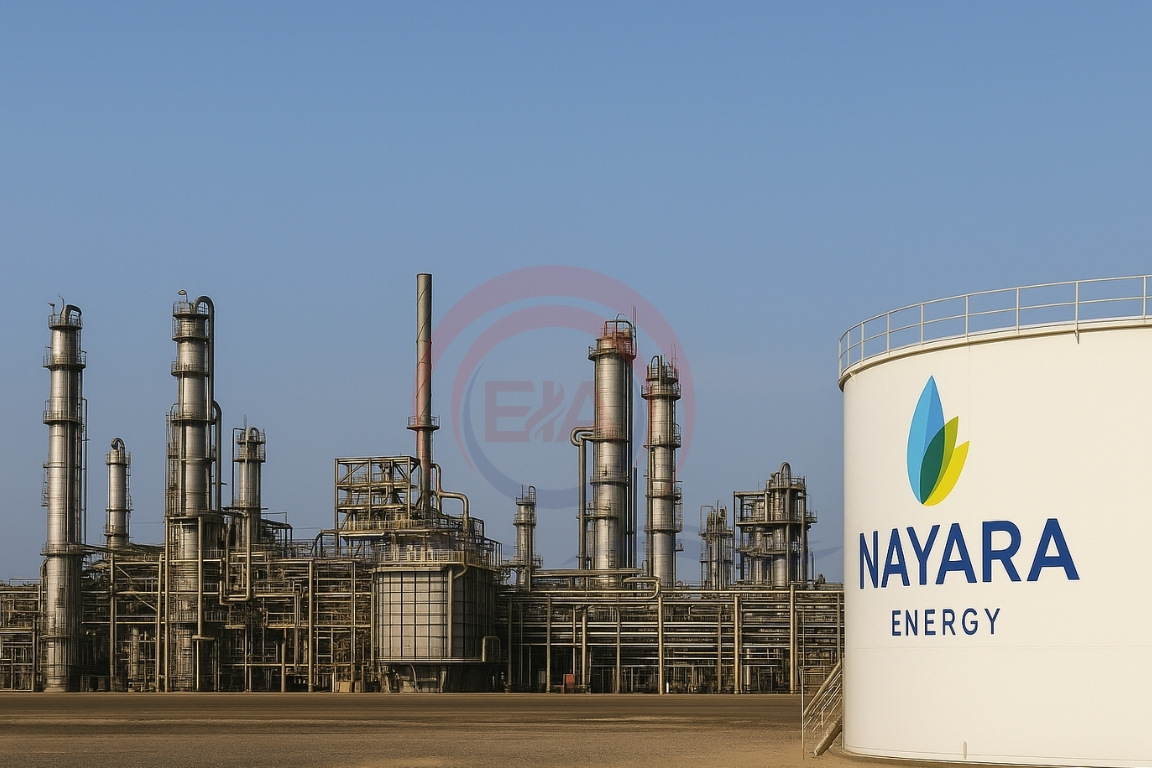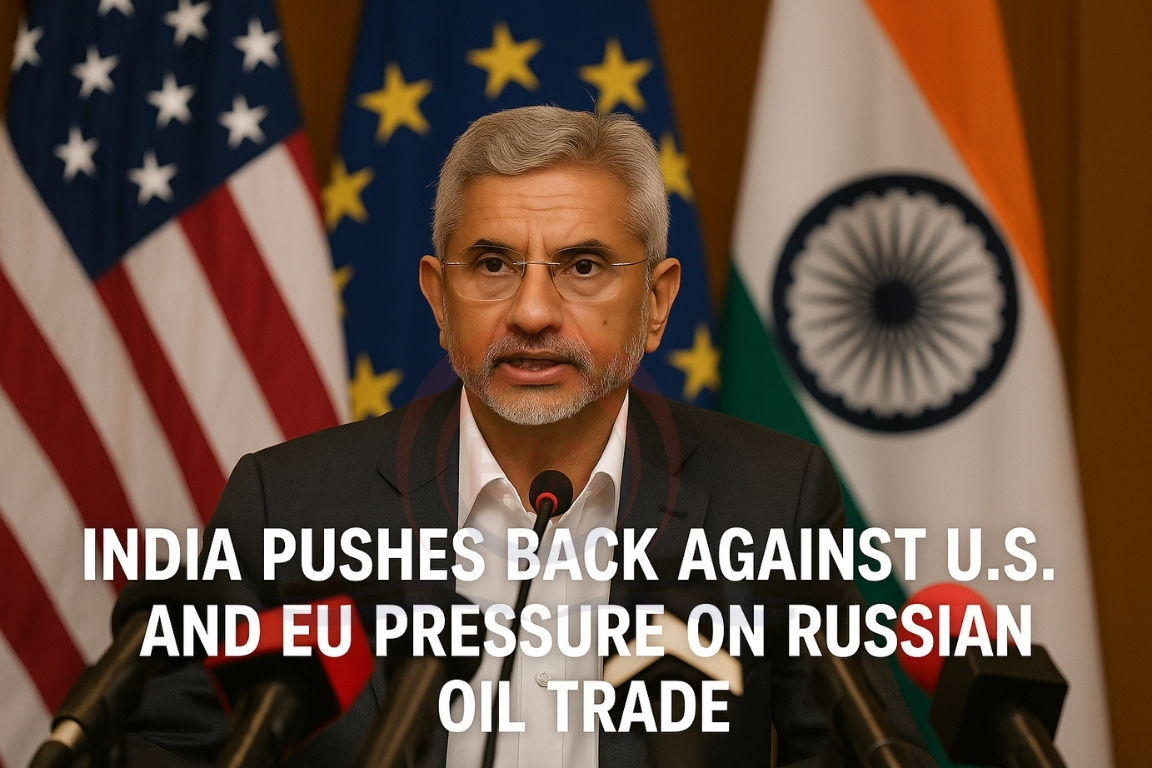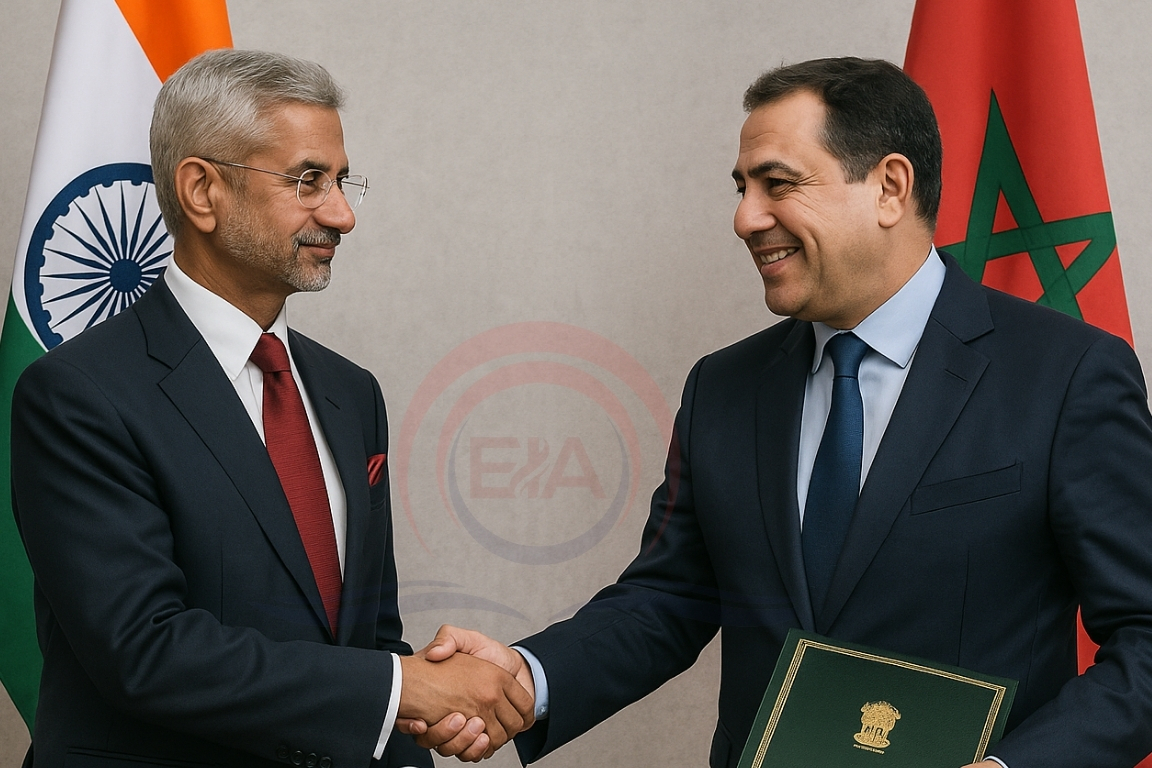The European Union has imposed sanctions on a Gujarat-based refinery owned by Nayara Energy due to its connection with Russia’s oil major Rosneft. This move reflects rising global pressure on countries engaging in energy trade with Russia.
Background and Context
- Nayara Energy operates a large refinery in Vadinar, Gujarat, with over 400,000 barrels/day capacity.
- Russia’s Rosneft owns a significant share in Nayara Energy.
- The EU’s new sanctions are part of its efforts to curb Russia’s energy revenue amid the Ukraine war.
Sanctions by the EU
- The EU’s latest measures:
- Lowered the price cap on Russian oil exports.
- Banned sale of petroleum products refined from Russian crude.
- Listed Nayara Energy as a sanctioned entity due to Rosneft’s stake.
- Applied asset freezes, travel bans, and restrictions on access to technology and financial resources.

Impact on India
- Energy supply concerns: The refinery is a major supplier within India and runs over 6,000 fuel stations.
- Foreign policy challenge: India stresses on energy affordability and opposes unilateral sanctions.
- Economic impact: Indian firms with international links face compliance pressures and risk of secondary sanctions.
- Strategic dilemma: India must balance economic interests with global geopolitical alignments.
Way Forward
- Diversify energy imports to reduce over-reliance on any single region.
- Engage diplomatically with both Western powers and Russia to protect national interests.
- Promote multilateralism and a rules-based global trade system to avoid arbitrary restrictions.
- Strengthen internal regulatory and compliance systems for international businesses.
Conclusion:
The EU’s move underlines how international sanctions can affect third-party nations. India must tread carefully to maintain both energy security and international relations.





